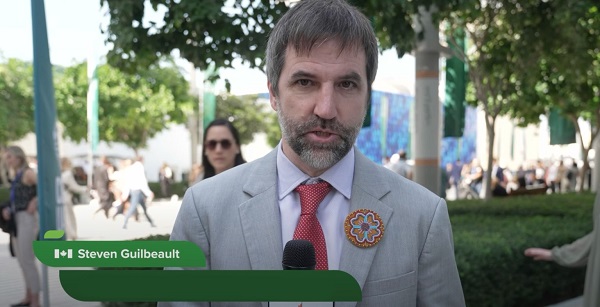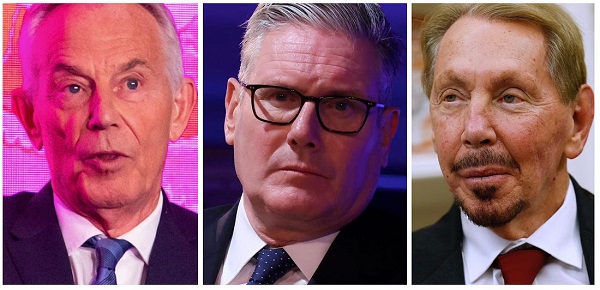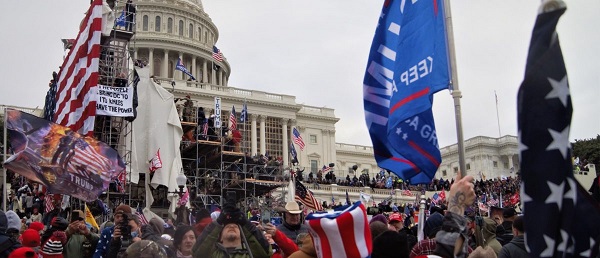Automotive
Drop in EV sales signals Ottawa should drop its mandate
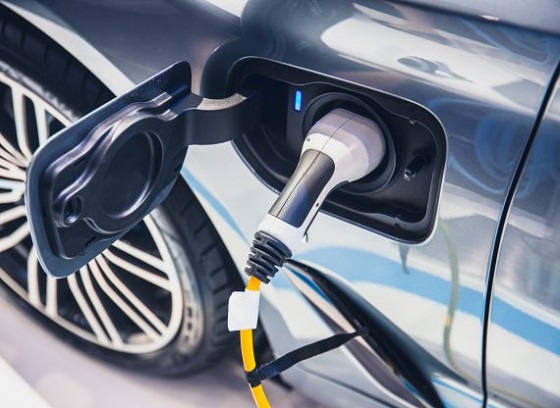
The slowing adoption of electric vehicles is a clear signal that the federal government should abandon its gradual ban on gas-powered vehicles, says the MEI.
“Consumer choices belong to consumers, not the government,” says Gabriel Giguère, senior policy analyst at the MEI. “With consumers’ appetite for electric vehicles waning, not only is the federal government’s mandate unrealistic, but it is also coercive.”
Data released this morning show that electric vehicle purchases are down 36.8 per cent year over year (Q2 to Q2).
In June, only 7.9 per cent of vehicle sales in Canada were zero emission, down from 13.0 per cent in June of 2024, according to Statistics Canada.
In 2023, the federal government introduced targets for gradually eliminating the sale of new gas-powered vehicles by 2035.
To meet the government’s targets, 20 per cent of new vehicle sales would need to be electric or plug-in hybrid in 2026, representing a 12-point jump from current levels and a reversal of the current trend.
“At this rate, the target will simply not be met, since Canadians’ current purchasing habits reveal a preference for other types of vehicles,” notes Mr. Giguère.
Seven in 10 Canadians (68 per cent) consider the prohibition of gas-powered vehicle sales by 2035 to be “unrealistic,” according to a Leger poll conducted earlier this month.
Asked whether they believe the EV mandate should be maintained or scrapped, 71 per cent of Canadians say it should be rescinded due to “high costs and implementation concerns.”
These concerns align with findings from an MEI Viewpoint published in February, which highlighted significant worries over the availability of charging infrastructure, the pressure on provincial electrical grids, and the high cost of purchasing new electric vehicles. Together, these concerns justify the abandonment of the federal prohibition.
“Canadians should have the freedom to purchase the vehicles that suit their needs,” says Mr. Giguère. “The adoption of new technology should be driven by innovation, not by government decree.”
* * *
The MEI is an independent public policy think tank with offices in Montreal, Ottawa, and Calgary. Through its publications, media appearances, and advisory services to policymakers, the MEI stimulates public policy debate and reforms based on sound economics and entrepreneurship.
Automotive
Canada’s EV subsidies are wracking up billions in losses for taxpayers, and not just in the auto industry

By Dan McTeague
To anyone who thought that the Liberals’ decision to postpone enforcement of their Electric Vehicle (EV) mandate by one year was part of a well-thought-out plan to get that disastrous program back on track, well, every day brings with it news that you were wrong. In fact, the whole project seems to be coming apart at the seams.
Here’s the latest crisis Mark Carney and his carnival of ideologues are having to deal with. Late last year, the Liberal party instituted a 100% tariff on Chinese-made EVs. The idea was to protect the Canadian EV industry from China dumping their vehicles into our country, at prices far lower than Canadian companies can afford due to their massive state subsidies. This has been a major problem in the EU, which is also attempting to force a transition to EVs.
But Beijing wasn’t going to take that lying down. Taking advantage of Western environmentalist sentiment is an important part of their economic plans — see, for instance, how they’ve cornered the global solar panel market, though the factories making them are powered by massive amounts of coal. So they retaliated with a 75% duty on Canadian canola seed and a 100% tariff on canola oil and canola meal.
This was big enough to really hurt Canadian farmers, and Ottawa was forced to respond with more than $300 million in new relief programs for canola producers. Even so, our farmers have warned that short-term relief from the government will do little if the tariffs are here for the long-term.
With pressure on Carney mounting, his Industry Minister Melanie Joly announced that the government was “looking at” dropping tariffs on Chinese EVs in the hope that China would ease off on their canola tariffs.
That may be good news for canola producers, but how about the automotive companies? They’ve grown increasingly unhappy with the EV mandate, as Canadian consumers have been slow to embrace them, and they’ve been confronted with the prospect of paying significant fines unless they raise prices on the gas-and-diesel driven vehicles which consumers actually want to make the EVs that they don’t really want more attractive.
That’s the context for Brian Kingston, CEO of the Canadian Vehicle Manufacturers’ Association, saying that dropping these tariffs “would be a disaster.”
“China has engaged in state-supported industrial policy to create massive overcapacity in EV production, and that plan is coming to fruition now,” Kingston said. “When you combine that with weak labour and environmental standards, Chinese manufacturers are not competing with Canadian, American, or Mexican manufacturers on a level playing field. We simply cannot allow those vehicles to be dumped into the Canadian market.”
The auto manufacturers Kingston represents are understandably upset about suddenly having to compete with underpriced Chinese EVs. After all, with the government forcing everyone to buy a product they really don’t want, are most people going to patriotically pay more for that product, or will they just grab whichever one is cheaper? I know which one I think is more likely.
And then there’s a related problem — the federal and provincial governments have “invested” somewhere in the neighborhood of $52.5 billion to make Canada a cog in the global EV supply chain. In response to Joly’s announcement, Ontario Premier Doug Ford, who has gone “all in” on EVs, wrote an open letter to the prime minister saying that canceling the tariffs would mean losing out on that “investment,” and put 157,000 Canadian automotive jobs at risk.
Now, it’s worth noting that automakers all over Ontario have already been cutting jobs while scaling back their EV pledges. So even with the tariffs, this “investment” hasn’t been paying out particularly well. Keeping them in place just to save Doug Ford’s bacon seems like the worst of all options.
But it seems to me that the key to untangling this whole mess has been the option I’ve been advocating from the beginning: repeal the EV mandate. That makes Canada less of a mark for China. It benefits the taxpayers by not incentivizing our provincial and federal governments to throw good money after bad, attempting to subsidize companies to protect a shrinking number of EV manufacturing jobs.
The heart of this trade war is an entirely artificial demand for EVs. Removing the mandate from the equation would lower the stakes.
In the end, the best policy is to trust Canadians to make their own decisions. Let the market decide.
Support Dan’s Work to Keep Canadian Energy Affordable!
Canadians for Affordable Energy is run by Dan McTeague, former MP and founder of Gas Wizard. We stand up and fight for more affordable energy.
Automotive
America’s Troubled EV Industry Loses Its Subsidized Advantage – Now What?
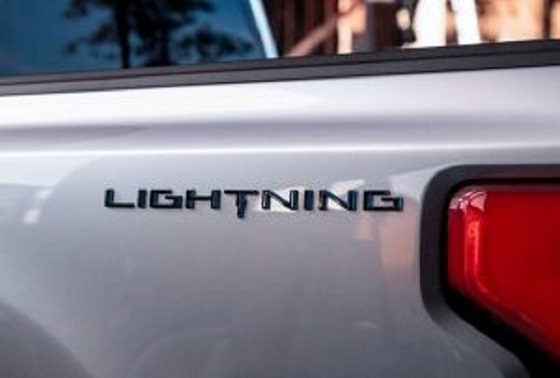

From the Daily Caller News Foundation
The Environmental Protection Agency announced Monday that it has assumed responsibility for what it says is the “Largest Lithium-Ion Battery Cleanup in Agency History” at the Moss Landing facility outside San Francisco.
Crews supervised by the EPA entered the facility this week to begin cleaning out the remains of the fire damaged batteries, which the agency says will be recycled at EPA-approved recycling facilities.
As has happened far too frequently, the retired batteries erupted spontaneously in January, leading authors of MIT’s weekly climate newsletter to speculate about what this latest conflagration would mean for the future of the electric vehicle and stationary battery storage industries going forward.
Dear Readers:
As a nonprofit, we are dependent on the generosity of our readers.
Please consider making a small donation of any amount here.
Thank you!
“With the growing number of electric vehicles and batteries for energy storage on the grid,” the authors wrote, “more high-profile fires have hit the news, like last year’s truck fire in LA, the spate of e-bike battery fires in New York City, or one at a French recycling plant last year.”
The parade of troubling incidents related to these batteries has continued throughout 2025. In June, for example, a large container ship called the Morning Midas, operated by Zodiac Maritime, sank into the Pacific Ocean after batteries in EVs it was carrying to Alaska spontaneously combusted, forcing the crew to abandon ship. A month later, U.S.-based shipper Matson announced it would no longer transport EV cargoes due to the obvious dangers involved. Three weeks later, Alaska Marine Lines put a similar policy in place.
All of these inconvenient news stories come at an already troubling time for the U.S. EV industry, given that its huge $7,500 per car federal subsidy expired at midnight, Sept. 30. That subsidy was enacted in the Orwellian-named Inflation Reduction Act of 2022 and subsequently repealed in the One Big Beautiful Bill Act signed into law by President Donald Trump on July 4 of this year.
Sales have spiked in the run-up to the subsidy expiration, to no one’s real surprise. But EV makers now face the troubling prospect of having to compete in the U.S. market absent that significant price advantage, leading many to anticipate a significant drop-off in sales.
Some carmakers have already begun to scale back operations. Stellantis announced the cancellation of a planned all-electric Dodge Ram pickup model on Sept.12, citing slowing demand for such trucks in a field already dominated by the Ford F-150 Lightning and the Tesla Cyber Truck. The fact that sales of those competing models are already coming in well below projections this year was another obvious motivating factor.
Ford, meanwhile, said in August it would delay the introduction of what it refers to as “next generation” updates to its Lightning pickup and full-sized electric van for two years due to the same challenging market conditions. “F-150 Lightning, America’s best-selling electric truck, and E-Transit continue to meet today’s customer needs,” the company said in what can only be described as an understatement.
Competitor GM announced it would take similar action on Sept. 4, saying it was suspending production of a pair of Cadillac SUVs – the mid-size Lyriq and the full-size Vistiq – at its assembly plant in Spring Hill, Tenn., effective in December. The company also said it would indefinitely delay the start of a second shift at an assembly plant near Kansas City.
Amid the frequent big fire events involving EV batteries and the industry’s fallout from the loss of a federal subsidy, it must be repeated here that the electric vehicle industry is not “new” or even a young one. It is in fact well over a century old, with the first electric cars introduced in the U.S. in the 1890s, during the same period when gas-powered cars started to come onto the market. In those early years, in fact, many experts insisted that electric cars would ultimately render gas-powered cars obsolete and become the dominant force in American transportation.
But makers of EVs then found themselves suffering from the same set of limitations that plague the industry well over a century later: Range anxiety, lack of infrastructure, and persistent unreliability.
The fact that an industry this old has still not solved for the same set of issues after so much time makes it reasonable to question whether it ever will.
David Blackmon is an energy writer and consultant based in Texas. He spent 40 years in the oil and gas business, where he specialized in public policy and communications.
-

 Business2 days ago
Business2 days agoBill C-8 would allow minister to secretly cut off phone, Internet service
-

 Business24 hours ago
Business24 hours agoCanada’s health-care system is not ‘free’—and we’re not getting good value for our money
-

 Alberta21 hours ago
Alberta21 hours agoIn Federal vs Provincial Battles, Ontario In No Longer A Great Ally For Alberta
-
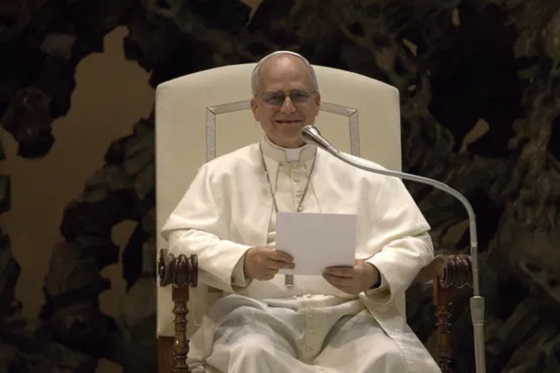
 International1 day ago
International1 day agoPope Leo hails Trump’s Gaza peace plan: “I hope Hamas will accept it”
-

 Alberta23 hours ago
Alberta23 hours agoOttawa’s Firearms Buyback Plan: Federal Government Puts Provincial Authority In Its Sights
-

 Alberta2 days ago
Alberta2 days agoHalfway River First Nation makes history with Montney natural gas development deal
-

 Economy2 days ago
Economy2 days agoReconciliation means clearing the way for Indigenous leadership
-

 International2 days ago
International2 days agoNetanyahu hails TikTok takeover as Israel’s new ‘weapon’ in information war



